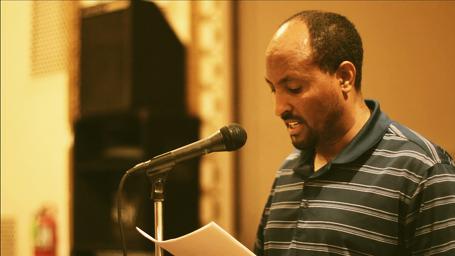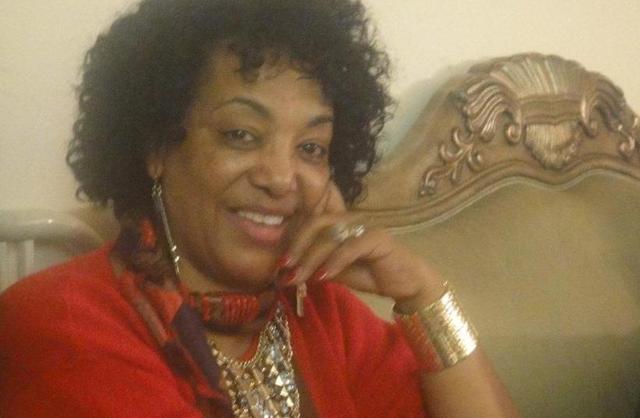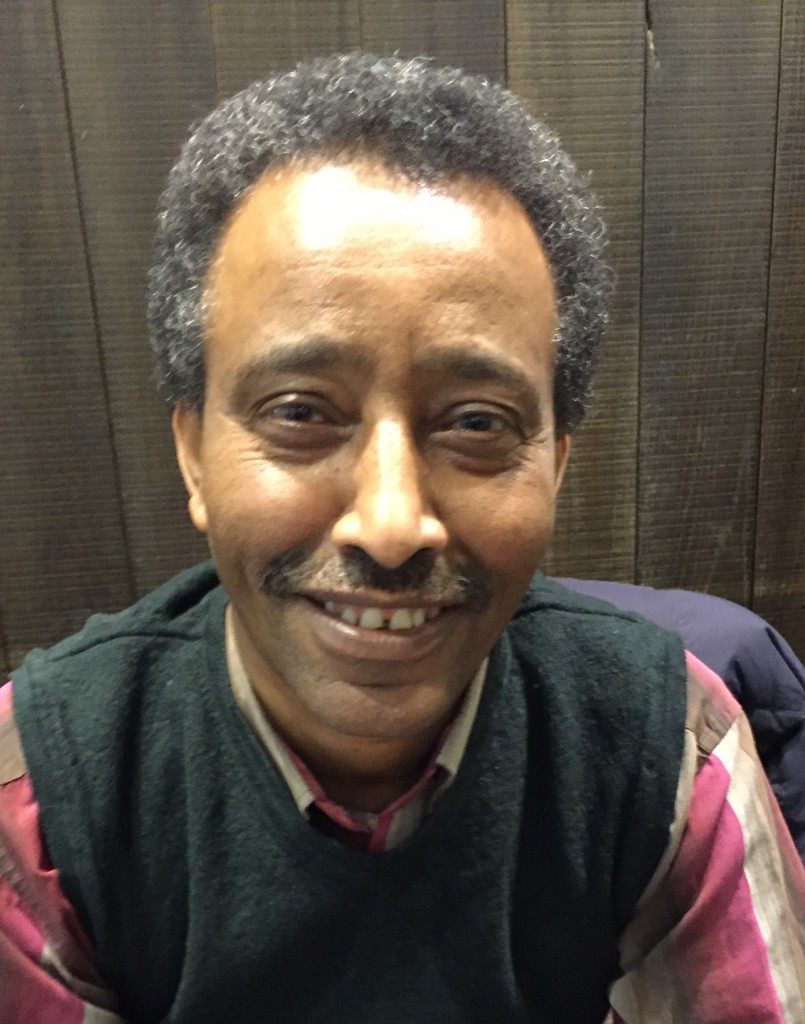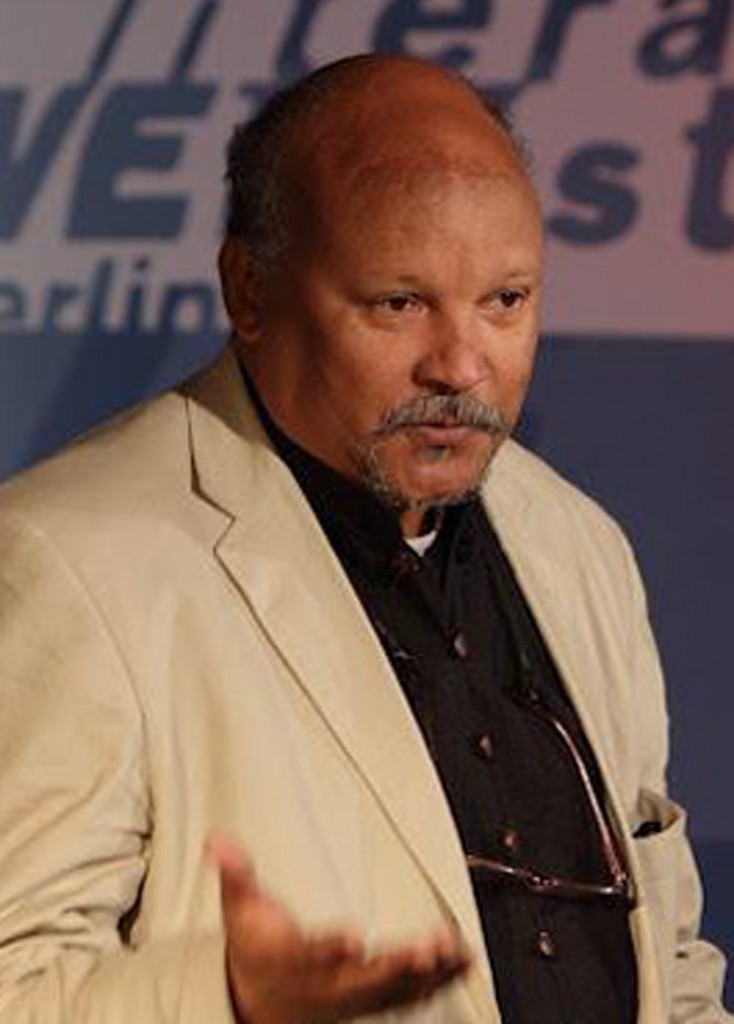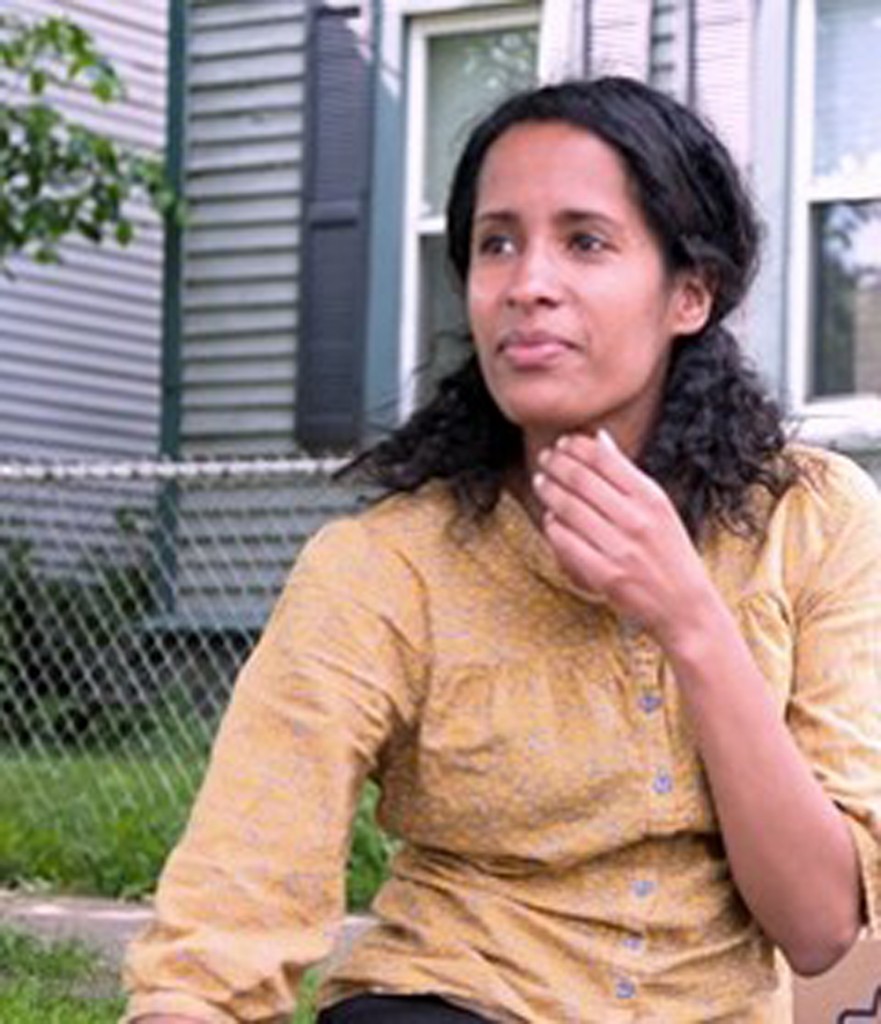Alemayehu Gebrehiwot
OK, let’s be exiled!
Yes, let’s be exiled,
far from our families,
our beloved country,
our villages, our rivers.
Let’s go! let’s rush!
yes, let’s be exiled,
Mary did it, trudging
over the deserts
with Jesus in her arms.
Then
let’s forget refuge forever
and start thinking of going back!
Let’s build imaginary houses
for our hearts to settle in advance
and fill them with wealth and blessings,
until the cows come home.
Yes, let’s return!
Let’s never get too comfortable!
~ Alemayehu Gebrehiwot, trans. from Amharic by Getatchew Haile
Alemayehu Gebrehiwot was born in 1962 and studied drama at Addis Ababa University, then worked at the Ministry of Culture before emigrating to Maryland, USA, in 2000. His Amharic translation of Oscar Wilde’s play ‘Lady Windermere’s Fan’ was staged at the Hager Fikir Theatre in Addis Ababa. His collection of poems in Amharic, ‘Etalem: Sebseb Getemoch’ (The Endeared Sister) was published in 2006.
Getatchew Haile is an Ethiopian-American philologist, widely considered the foremost scholar of the Ge’ez language alive today. His awards include a MacArthur Fellows Program “genius” award and the Edward Ullendorff Medal from the Council of the British Academy.
Editor’s note: This translation first appeared in Diaspora 15: 2/3, 2006: ‘Amharic Poetry of the Diaspora in America: a Sampler’
Alemtsehay Wodajo
The soul has a message
From the time she arrives, until the time she leaves her borrowed body,
the soul has a message, a role to perform and the means to perform it:
she creates the things she likes, but also works for others
and plans for the future, spinning comforts like a thread.
The soul has a message, she is entrusted with an assignment.
There are those who are dead even while they live,
who have erred and disappointed the soul,
who have carried her without benefit and paid no attention to her,
who have passed away despised, who let their soul pass away despising her.
To the likes of these, she should not have been given.
To those who, carrying the soul, have no soul.
~ Alemtsehay Wodajo, trans. from Amharic by Getatchew Haile
Alemtsehay Wodajo is an actress and song-writer born in 1955. Since 1991 she has lived in Maryland, USA, where she is an active member of the Ethiopian community. Her collections of poems are ‘Marafiya Yattach Heywot’ (A life that has no resting place), published in 1996, and ‘Yemata Injera’ (Evening Bread, 2009). Many of her poems are modelled on traditional war songs in which women sing in order to inspire soldiers preparing for battle.
Getatchew Haile is an Ethiopian-American philologist, widely considered the foremost scholar of the Ge’ez language alive today. His awards include a MacArthur Fellows Program “genius” award and the Edward Ullendorff Medal from the Council of the British Academy.
Editor’s note: This translation first appeared in Diaspora 15: 2/3, 2006: ‘Amharic Poetry of the Diaspora in America: a Sampler’
Alemu Tebeje Ayele
The saucepan and the cabbage
At the departure of my best friend
My best friend has died
and my grief is a fire that burns even my tears.
I miss his honest smile,
his goodness keeps me company.
Now the mourners walk away
and do not see me burning for my best friend.
He is far from life now,
burnt out of his life by the flames of yellow fever.
~ Alemu Tebeje Ayele, trans. from Amharic by the author and Chris Beckett
Alemu Tebeje Ayele is an Ethiopian journalist, social worker, poet and web-campaigner based in London. His poems have been published in the anthologies ‘Forever Spoken’ and ‘No Serenity Here’, featuring 26 poets from 12 African countries.
Chris Beckett grew up in Ethiopia in the 1960s and his acclaimed collection of praise shouts and boasts, ‘Ethiopia Boy’, was published by Carcanet in 2013. The book of his collaborative project with artist Isao Miura, ‘Sketches from the Poem Road’, has been shortlisted for the Ted Hughes Award 2015.
Amha Asfaw
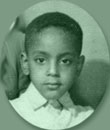
Childhood photograph of Amha Asfaw, courtesy of senamirmir.org
Silence
Silence is golden, say my countrymen.
A bug would not enter a closed mouth, say my countrymen.
They have not seen America,
a land where silence is synonymous with laziness
and a quiet man is considered ignorant.
A candle in a jar
Do not deceive yourself
that you are a candle in a jar:
a candle gives off light.
Do not deceive yourself
that you are a glowing ember:
embers burst into flame.
Do not deceive yourself
saying “we are the ashes left by a fireâ€:
you never burnt like a fire.
You do not have the fuel.
You do not have the oil
which is the source of all light.
You do not have it in you.
~ Amha Asfaw, trans. from Amharic by Getatchew Haile
Amha Asfaw was born in 1949 and has lived in USA since 1974. He is a physicist working as research instructor and programmer at University of Missouri, Columbia. He has translated poems of Langston Hughes into Amharic. His latest collection is ‘Yilalla Denebo’, the title of a funeral lament.
Getatchew Haile is an Ethiopian-American philologist, widely considered the foremost scholar of the Ge’ez language alive today. His awards include a MacArthur Fellows Program “genius” award and the Edward Ullendorff Medal from the Council of the British Academy.
Editor’s note: This translation first appeared in Diaspora 15: 2/3, 2006: ‘Amharic Poetry of the Diaspora in America: a Sampler’
Hama Tuma
Of guilt
The man ran after his fart
to slap it back
and erase the shame.
The stink lingers.
Today’s love is tepid, almost cold,
won’t dry a hankie,
no heat at all.
Time has subdued my countrymen,
they pass history twice and
leave no shadow behind.
The frog in the pond
laughed itself to death, the owl is blind.
In the Waldiba monastery, forever silent,
noisy festivities are held.
Time moves on grinding all,
changing all,
but the crocodile has no teeth
and the Ethiopian no guilt:
everyone’s heart is lost.
~ Hama Tuma
Hama Tuma is an important Ethiopian political activist, poet and writer of satirical articles and short stories. His first collection of stories, ‘The Case of the Socialist Witch Doctor and Other Stories’, was published by Heinemann London in 1993. He lives in Paris.
Lena Bezawork Grönlund
Mercato, Addis
Addis Ababa
This city
wakes with the mosques
that begin their days
praying, closing its eyes
to the sound of drums
echoing from the churches
out into the night.
Close
~ Lena Bezawork Grönlund
Lena Bezawork Grönlund was born in Addis Ababa but grew up in the north of Sweden. She has a master’s degree in Library and Information Science from Uppsala University and a B.A in Literature and Creative Writing from the University of Montana.

